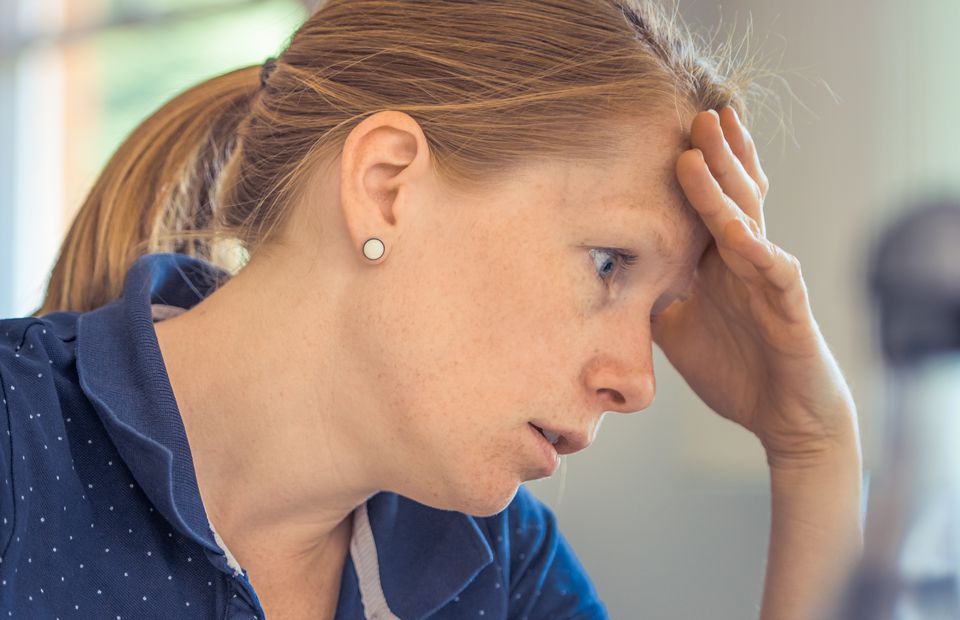"Who will be taking care of your children?"
When I was asked how I’d handle childcare in a job interview a few years ago, the interviewer immediately backtracked and told me to pretend she hadn’t asked. We were all aware that it was
an inappropriate (not to mention illegal) question that revealed an anti-working mom bias.
Whether or not this was the right thing to do, I don’t know, but I chose to address her concern. I figured if my interviewer had any doubts about whether I could handle the job, it would be better to address those doubts directly rather than pretending they didn’t exist.
I believe that it’s important to address the awkward questions and assumptions people have about motherhood and work, as messy and complex as it can be. We can’t successfully examine an issue like
the motherhood penalty without addressing the beliefs (conscious and unconscious) that many people hold about
mothers and work. So, let’s get into it.
7 Common Myths About Working Mothers—And Why They’re Wrong
While we can’t unpack all of the most commonly held beliefs about motherhood and work in the space of one article, we can at least make a start.
Myth #1: Kids need their mothers to be at home until they start school.
While it’s certainly true that young children need as much bonding time with their parents as possible, especially while they’re young, in an ideal world they would have plenty of time with both parents. In our culture, we tend to put a lot of emphasis on the mother-child relationship, forgetting that the father-child bond is also of equal importance.
In her book
Delusions of Gender: The Real Science Behind Sex Differences, neuroscientist Cordelia Fine points out that fathers’ hormone levels change during the transition to parenthood, too, which suggests that it isn’t just pregnancy that prepares a parent to bond with—and care for—their child. As she notes, “In her study of equal sharers—that is, mothers and fathers who equally share the responsibilities and pleasures of home life—Francine Deutsch found that equally sharing fathers had developed the kind of closeness to their children we normally associate with mothers.”
Because the changes that go on in a mother’s body during pregnancy, birth, and post-birth (for example, increased levels of oxytocin, the chemical often called "the love chemical"), it may be easier and faster for her to develop a bond with her baby than it is for the father. But this is precisely why fathers need to stick around in those crucial early days; if they’re just getting the adrenaline and cortisol provoked by sleep deprivation and crying, and none of the oxytocin triggered by cuddles and quieter moments of caring for the infant, it could establish a challenging pattern.
Myth #2: Mothers should pick their kids up from school and be at home with them after school.
Again, the need for parental contact and a deep sense of the parents “being there” for a child doesn’t fade as they grow. However, to suggest that the duty to be present for kids is entirely the responsibility of mothers is to do a disservice to the importance of the father-child relationship.
One of my most precious parenting memories is of watching my husband set off hand-in-hand with our three year-old daughter on the daily walk to school when I was
working full-time as our family’s breadwinner. I know my daughter and husband both treasure the bond that they nurtured and memories that they made during those walks, too.
As Fine explains, “Contrary to the idea of shared care as a modern, misguided fad, contemporary fathers may be less involved with their children than they were two to three hundred years ago.” Fine refers to the work of historian John Demos, whose research found that “When in the nineteenth century men’s work increasingly moved outside the home, stories of the time ‘picked up the tension’ between career and home life.”
The “she-fault” parent style of thinking also does a disservice to the many close bonds that can exist between children and other caregivers in their lives like grandparents, aunts, uncles, nannies, and paid childcare providers. It truly takes a village to raise a child, and I love to watch the beautiful bonds my children have with my friends unfold. These relationships are so important and help shape who we are in positive ways.
Of course it’s important that a child has a sense of stability and consistency, knows what to expect, and gets enough time with all key caregiving figures in their lives. It’s also important that they know that their wellbeing is of the highest priority to their parents.
But this doesn’t have to manifest as the mother being the only person taking care of them. It seems to me that it’s highly beneficial for children to experience a variety of support from a variety of sources. In the past when local communities were stronger and extended families generally lived closer together, the idea of the caregiving “village” was stronger than it is today.
I also think it’s important to note that what is modeled for us helps shape how we think and behave later in life in profound ways. I hope that I'm showing my daughters that I’m passionate about my work by talking to them about it,
having boundaries around it, and demonstrating that I value both my time with them and my time working.
Myth #3: The mother should take on the household responsibilities, especially if her job is less demanding or she’s earning less than her partner.
When it comes to
domestic work and unpaid labor, it’s important to point out that with a paid job, you typically clock in and out of work (not to mention your vacation and sick days). With domestic chores and childcare, it’s never-ending. You never have “time off.” The laundry keeps stacking up and the meals don’t cook themselves. The fact that you’re a stay-at-home mom or your work is flexible doesn’t justify you doing all the domestic work all the time.
Often the idea is that a woman earns less, works fewer hours, or does a “less challenging” job than her male partner, and so it makes practical sense that she carries the heavier load at home. Or perhaps because she has higher standards and cares more about the cleanliness of the house, it’s inherently "her problem."
This can be a self-perpetuating cycle. If the mother is doing most of the housework, she’s less likely to be able to put in more hours at work, leading to slower career progression and
a greater pay gap.
Also, Francine Deutsch’s research found that couples tend to claim that a man’s job is more demanding (rather than having fixed categories of which jobs are, by nature, demanding), so perhaps this is a subjective category on which to base the way we divide our time.
Finally, there isn’t any convincing neurological evidence to suggest women are wired to be more attuned to cleanliness, or biologically better suited to cleaning than men.
If you share a home, it seems obvious that you should share the duties that come with maintaining that space, agreeing on mutually-held standards like the fully-grown adults that you are.
Myth #4: The fact that some women choose to opt out of work at the start of their children’s lives proves that it’s natural.
It’s true that many women gladly choose
the stay-at-home mom life, and that is to be supported and celebrated. It’s also true that when you’ve grown and birthed a human being, you need recovery time to focus on healing your body.
Far from being a holiday, the period of time after welcoming a new baby into the world is an intense training session in your
new life as a parent, complete with extreme sleep deprivation, a constant flow of dirty diapers, and constant cuddles.
But it’s worth pointing out that “choice” isn’t such a clear-cut thing as you might assume here, for various reasons.
Many single mothers and women who don’t have
access to maternity leave often don’t have a choice but to head straight back to work after going through one of the most intense physical experiences of their life, often while their bodies are still healing, whether they want to or not.
Similarly, many women find themselves physically unable to go back to work for a period of time after childbirth, and so end up losing their jobs as a consequence.
Women may also not to return to work because their partner isn’t offering to pitch in enough to make it practically possible, or their employers aren’t willing to accommodate parental needs. Many women in these circumstances also opt for stay-at-home motherhood or
part-time flexible work.
As
The Female Lead’s Women at Work project puts it, “preferences are shaped and enacted within a context in which constraints are felt, either explicitly or implicitly. These constraints include childcare costs, the input (if any) provided by a partner, and job design (what a job with adequate pay looks like)… Women’s preferences can only be understood in the context in which they face constraints.”
Myth #5: A mother’s priority should be her children, so she can’t be a reliable worker.
She’ll have to take time off work when they’re sick and leave work early to go to sports games. If she’s prioritizing her kids, she’s bound to be flaky and uncommitted at work.
Yes, a parent’s number one priority is always their children. But again, shouldn’t we hold mothers and fathers to the same standards here? There are many different ways of prioritizing your family—this may manifest as providing for them financially, contributing towards building a better world for them, inspiring them by
being passionate about what you do, or cooking them healthy meals.
If a father can confidently say that his priority is his children while also pursuing a career, then a mother should be able to say the same.
I don’t mean that we shouldn’t
take pride in our work, be ambitious, and work hard, of course. But even non-parents will have to take time off to support loved ones, care for their health, and deal with unexpected life circumstances from time to time.
Surely we should be building workplaces that allow everyone to
have a life outside the office, by normalizing and celebrating the fact that people can excel in their field and be committed to their work while also having a higher priority outside of work.
It’s my belief that the things that parents need in order to work and still take care of their kids’ needs (and I mean parents, not just mothers) also benefit everyone, non-parents included.
Myth #6: Doesn’t pregnancy affect women’s brains, making them less fit for work outside the home, at least temporarily?
If anything, motherhood appears to make women’s minds sharper,
increasing empathy, reasoning, and judgement. So, yes, biological motherhood may well have a long-term impact on women’s brains, but not in a detrimental way.
Myth #7: Men have some kind of evolutionary hunter-gatherer instinct that equips them better for the world of work, and makes it more important, psychologically, for them to be “the breadwinner.”
This is one of the most commonly-held opinions I’ve encountered.
I’ve lost track of the number of times people casually cited the special need men apparently have to bring home a paycheck, or the bigger paycheck, as the reason more mothers sacrifice their careers than fathers.
Having been the breadwinner for a few years, I can say that I experienced a huge amount of satisfaction from knowing I was providing for our family, comparable levels to those that my husband describes in his lead breadwinning role now.
Recent data shows that I’m not alone: The Female Lead’s Women at Work project found that, of the 66 women involved in the study, “women embraced their ambition and their drive…They valued independence, both personal and financial, and their careers were very important to their identity and sense of purpose.” So, there you go.
Obviously every person is unique. It’s not wrong for a man to enjoy filling the role of breadwinner or for a woman to embrace a role as lead caregiver and homemaker, but it’s also important to acknowledge the invisible pressures that may be forcing many women to fit into a traditional pattern that doesn’t work so well for them and their families.
It seems pretty obvious that the extra unpaid work women are doing at home is having a negative impact on their career progress and professional achievements over time, as well as contributing towards a significant loss of leisure and personal time.
Some people conclude from this state of affairs that the move to liberate women from the domestic sphere was wrongheaded because it just ended up making women feel like they have to do it all, multiplying their duties and burdens instead of setting them free.
But then again, I don’t know any woman who actually wants to do it all. In fact, I know plenty of women who want quite the opposite: they want to stop doing it all so that they can, like the men in their lives, enjoy and excel at the few things that they really care about with less stress and overwhelm.











